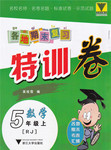题目内容
---- They like going to sleep early, don’t they?
---- Yes. They are accustomed ___________ very late.
A. to stay up B. to not stay up
C. to staying up D. to not staying up
D
【解析】
试题分析:考查短语固定搭配。 be accustomed to sth/doing sth 意思为 “习惯于……”, to 为介词, 后接动名词。句意:——他们喜欢睡得早,不是吗?——是的,他们不习惯于熬夜太迟。你能原谅我吗?故D正确。
考点:考查短语固定搭配

练习册系列答案
 各地期末复习特训卷系列答案
各地期末复习特训卷系列答案 小博士期末闯关100分系列答案
小博士期末闯关100分系列答案
相关题目